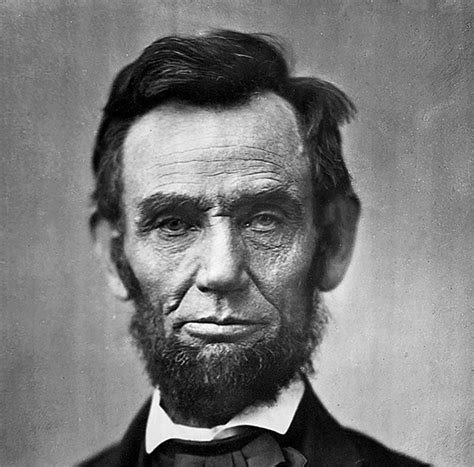Introduction

Abraham Lincoln, the 16th President of the United States, played a pivotal role in shaping the course of American history. His leadership during the Civil War, his unwavering commitment to preserving the Union, and his tireless fight against slavery have left an enduring legacy on the nation. This article provides a comprehensive APUSH definition of Abraham Lincoln, exploring his life, accomplishments, and his impact on American society.
Early Life and Career
Birth and Childhood
Abraham Lincoln was born on February 12, 1809, in a log cabin in Hodgenville, Kentucky. His parents, Thomas and Nancy Lincoln, were poor farmers who struggled to make ends meet. Lincoln had limited formal education, but he was an avid reader and self-educated himself.
Legal and Political Career
In 1834, Lincoln moved to Illinois and began his legal career. He quickly established himself as a skilled lawyer and became active in politics. He served in the Illinois legislature from 1834 to 1842 and in the U.S. House of Representatives from 1847 to 1849.
Anti-Slavery Activism
Opposition to Slavery
Lincoln’s opposition to slavery was a central theme throughout his career. He believed that slavery was morally wrong and a threat to the principles of freedom and equality upon which the United States was founded.
Lincoln-Douglas Debates
In 1858, Lincoln engaged in a series of debates with Stephen A. Douglas over the issue of slavery in the territories. The debates garnered national attention and solidified Lincoln’s reputation as a leading abolitionist.
Presidency and the Civil War
Election of 1860
In 1860, Lincoln was elected President of the United States. His election triggered the secession of seven Southern states, which formed the Confederate States of America.
Civil War
The Civil War began in 1861, and Lincoln played a critical role in leading the Union to victory. He issued the Emancipation Proclamation in 1863, freeing slaves in Confederate-held territory. He also oversaw the expansion of the Union army, the establishment of a national banking system, and the enactment of the Homestead Act.
Assassination
On April 15, 1865, Lincoln was assassinated by John Wilkes Booth at Ford’s Theatre in Washington, D.C. His death sent shockwaves throughout the nation and solidified his status as a martyr for the cause of freedom and unity.
Lincoln’s Legacy
Preservation of the Union
Lincoln’s most significant legacy is his preservation of the Union. He successfully led the United States through the Civil War and prevented its dissolution.
Abolition of Slavery
Lincoln’s Emancipation Proclamation and his support for the Thirteenth Amendment led to the abolition of slavery in the United States. This marked a major turning point in American history and laid the foundation for the civil rights movement.
Constitutional Legacy
Lincoln’s leadership during the Civil War strengthened the federal government and expanded the executive branch’s powers. He also played a key role in the passage of the Fourteenth Amendment, which extended citizenship to all persons born or naturalized in the United States.
Impact on American Society
Symbol of Unity and Freedom
Abraham Lincoln remains a symbol of unity and freedom for Americans. His image is depicted on the Lincoln Memorial, the Lincoln penny, and the five-dollar bill. His speeches, particularly his Gettysburg Address, are considered among the greatest in American history.
Inspiration for Social Justice
Lincoln’s commitment to equality and justice has inspired generations of social justice activists. His legacy continues to inspire efforts to promote civil rights, reduce poverty, and advance the cause of human dignity.
Common Mistakes to Avoid in APUSH
- Oversimplifying Lincoln’s Views on Slavery: Lincoln’s stance on slavery evolved over time. While he initially opposed its expansion, he gradually came to believe that its abolition was necessary to preserve the Union.
- Underestimating Lincoln’s Political Acumen: Lincoln was a skilled politician who navigated complex political landscapes. His ability to compromise and negotiate helped him achieve major legislative victories.
- Ignoring Lincoln’s Personal Struggles: Lincoln faced numerous personal challenges throughout his life, including the death of his children and the assassination of his wife. Understanding these struggles provides a deeper appreciation of his resilience and character.
FAQs
- When was Abraham Lincoln born? February 12, 1809
- What was Lincoln’s profession before becoming President? Lawyer and politician
- What were Lincoln’s major policies during the Civil War? Emancipation Proclamation, expansion of the Union army, establishment of a national banking system, Homestead Act
- How did Lincoln die? Assassination by John Wilkes Booth
- What are some of Lincoln’s most famous speeches? Gettysburg Address, Second Inaugural Address
- What is Lincoln’s impact on American society? Symbol of unity, inspiration for social justice, constitutional legacy
- What are some common mistakes to avoid in APUSH regarding Lincoln? Oversimplifying his views on slavery, underestimating his political acumen, ignoring his personal struggles
